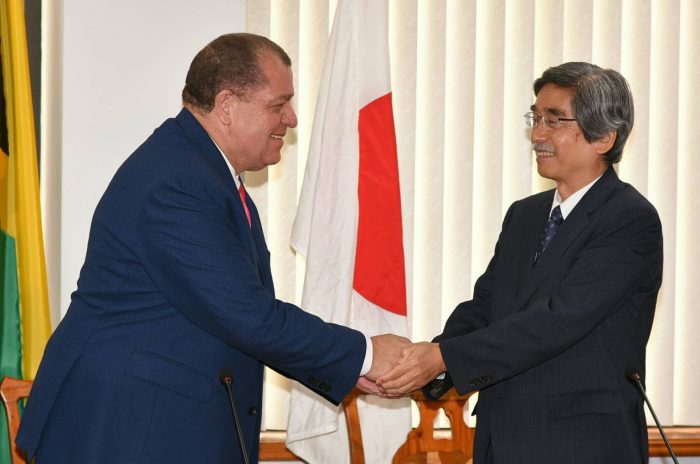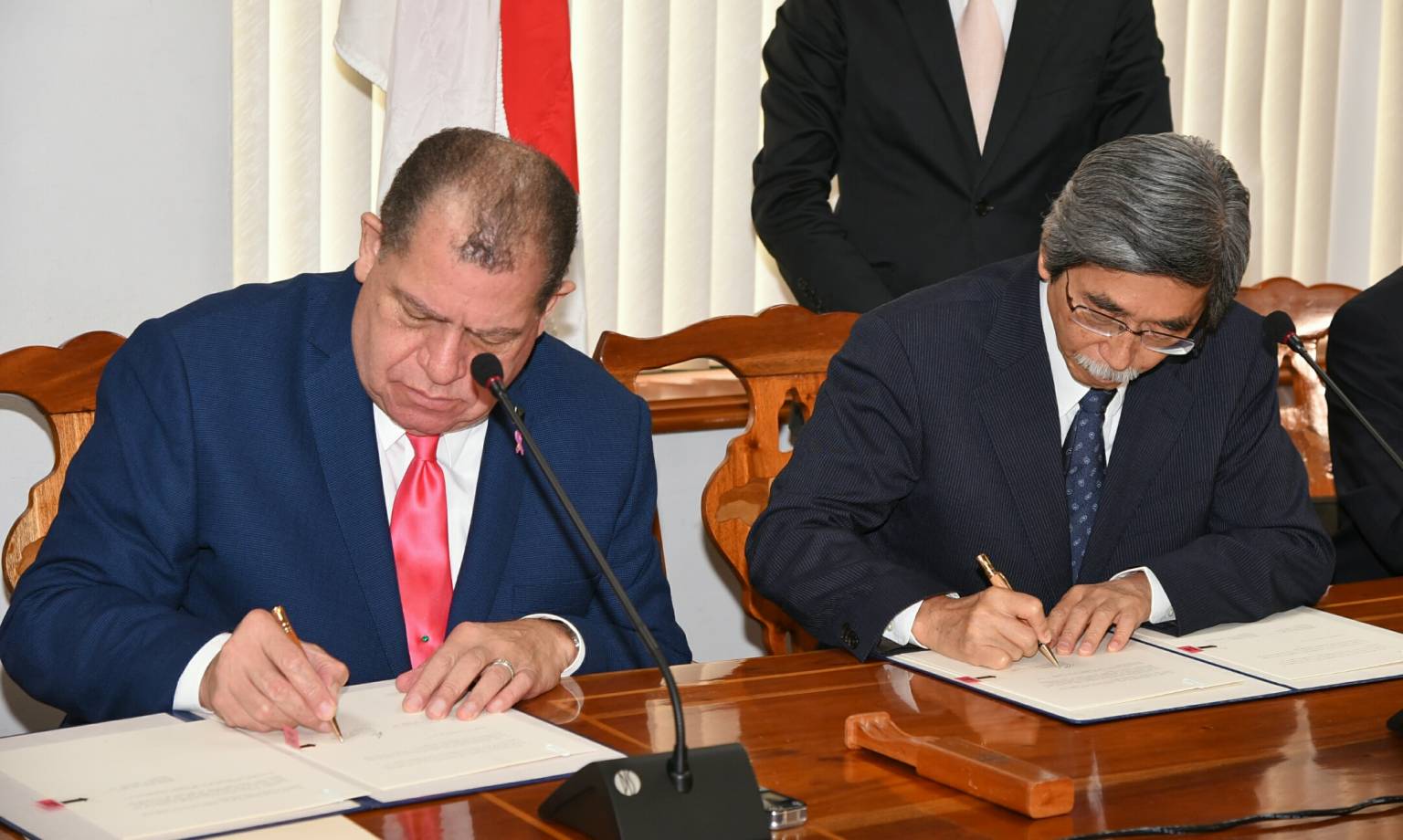Energy Management And Efficiency Programme Strengthened
By: , October 7, 2017The Key Point:
The Facts
- Addressing the signing ceremony for the Exchange of Notes and the Record of Discussions, at the Finance and the Public Service Ministry, in Kingston, on October 6, Portfolio Minister, Hon. Audley Shaw, said the availability of the loan is timely.
- Meanwhile, outgoing Japanese Ambassador to Jamaica, His Excellency Masanori Nakano, said the loan being provided to Jamaica falls under the first of the three-pillar Japan-Jamaica Partnership.
The Full Story
The Energy Management and Efficiency Programme (EMEP) of the Government has been strengthened with a loan of US$15 million from the Government of Japan.
The primary objective of EMEP is to bolster the government’s efforts in the areas of energy efficiency and conservation through the design and implementation of measures targeting key Government facilities as well as fuel usage within the sector.
Expected results of the project include: reduced electricity consumption within government facilities; decreased fuel consumption through traffic control management; and increased capacity of the relevant authorities or organizations in the promotion and supervision of electricity planning.
Addressing the signing ceremony for the Exchange of Notes and the Record of Discussions, at the Finance and the Public Service Ministry, in Kingston, on October 6, Portfolio Minister, Hon. Audley Shaw, said the availability of the loan is timely.
The signed documents form a precursor to the overarching loan agreement between the Japanese Government and Jamaica that facilitate the provision of loan resources.
“It (loan) comes at a time when efforts are being made by the Government to diversify the country’s energy mix in order to create a modern, efficient and environmentally sustainable energy sector and to reduce Jamaica’s dependence on imported oil,” he said.
The loan, which is being financed through the Japan International Cooperation Agency (JICA), is part of a joint loan of US$30 million with the Inter-American Development Bank (IDB), which will provide the other US$15 million.
Mr. Shaw noted that the loan from JICA reaffirms the “vibrant partnership” that exists between Jamaica and Japan.
He reiterated the advanced plans by the Government to diversify the country’s energy mix, which includes the introduction of liquefied natural gas (LNG) and renewables, such as wind and solar power.
“We already have converted 120 megawatts from heavy fuel oil in Montego Bay into LNG and we have started a new plant at Old Harbour in St Catherine for another 190 megawatts of LNG. In addition to that, we are close now to 100 megawatts of renewable energy in the form of wind and solar (power),” he said.
The country’s National Energy Policy of 2009-2030 speaks to Jamaica having a secured, diversified and sufficient supply of energy, which will, in turn, support long-term economic and social development as well as environmental sustainability.
Mr. Shaw informed that coupled with strides being made for alternative energy, there needs to be an equal focus placed on conservation, which involves switching to light-emitting diode (LED) lights.
Meanwhile, outgoing Japanese Ambassador to Jamaica, His Excellency Masanori Nakano, said the loan being provided to Jamaica falls under the first of the three-pillar Japan-Jamaica Partnership.
“That speaks to Japan and Jamaica seeking to advance cooperation towards sustainable development, including vulnerabilities particular to Small Island Development States (SIDS),” he said.
The Japanese Ambassador, who will end his tour of duty on October 10, is hoping that the loan will be a “worthwhile contribution for energy conservation, which is essential for the further economic and sustainable development of the country”
An additional US$10 million in grant funding will be provided by the European Union-Caribbean Investment Facility (EU-CIF), making a total of US$40 million that will be pumped into the EMEP.
The EMEP is executed by the Petroleum Corporation of Jamaica (PCJ), under the Ministry of Science, Energy and Technology.





